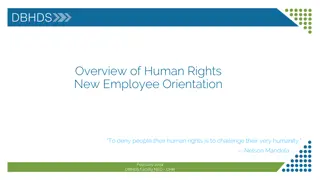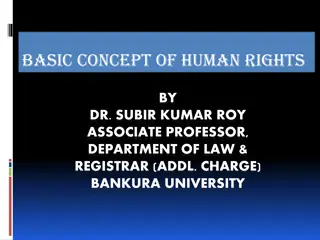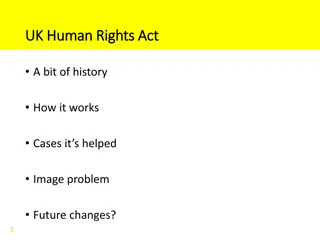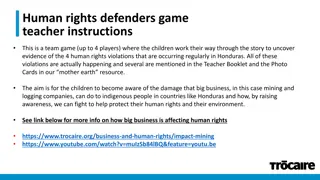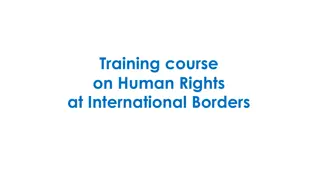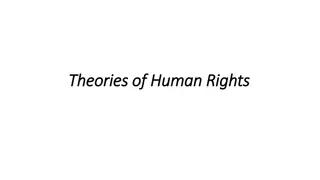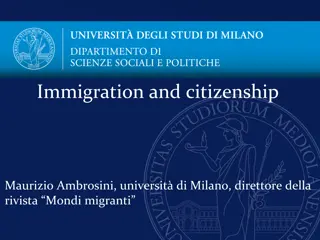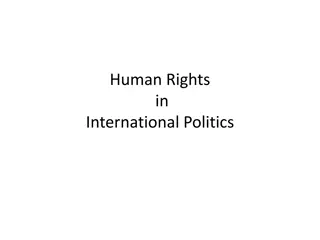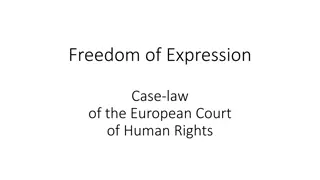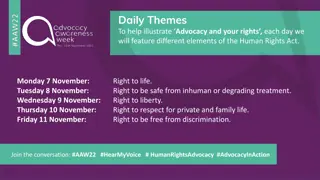The Significance of Human Rights in the Modern World
Human rights are fundamental rights that belong to all individuals, are inalienable, indivisible, interconnected, and should be respected without prejudice. The Universal Declaration of Human Rights, adopted in 1948 after WWII by the United Nations, is a crucial milestone document emphasizing human dignity and proclaiming the inherent rights of every human being. It includes civil, political, economic, social, and cultural rights, transcending boundaries and languages to promote a world where human rights are universally protected.
Download Presentation

Please find below an Image/Link to download the presentation.
The content on the website is provided AS IS for your information and personal use only. It may not be sold, licensed, or shared on other websites without obtaining consent from the author.If you encounter any issues during the download, it is possible that the publisher has removed the file from their server.
You are allowed to download the files provided on this website for personal or commercial use, subject to the condition that they are used lawfully. All files are the property of their respective owners.
The content on the website is provided AS IS for your information and personal use only. It may not be sold, licensed, or shared on other websites without obtaining consent from the author.
E N D
Presentation Transcript
Human Rights Human Rights are the rights people are entitled to simply because the are human beings. They are Universal: belong to all people Inalienable: cannot be taken away Indivisible: cannot be treated in isolation Interconnected: are dependent on one an other Non-discriminatory: should be respected without prejudice The modern affirmation of Human Rights came after the 2WW, with the creation of the United Nations an intergovernmental organization responsible for maintaining international peace and security, developing friendly relations among nations, achieving international cooperation, and being a center for harmonizing the actions of nations.
The Universal Declaration of Human Rights On 10 December 1948 the United Nations General Assembly adopted the Universal Declaration of Human Rights (UDHR): a milestone document in the history of human rights. Motivated by the experiences of the preceding world wars, the international community thought it was important to emphasize the concept of human dignity and the Universal Declaration was drafted by representatives with different legal and cultural backgrounds from all regions of the world. For the first time, it set out fundamental human rights to be universally protected, proclaiming the inalienable rights which everyone is inherently entitled to as a human being regardless of race, colour, religion, sex, language, political or other opinion, national or social origin, property, birth or other status. The Universal Declaration includes civil and political rights, like the right to life, liberty, free speech and privacy. It also includes economic, social and cultural rights, like the right to social security, health and education. Available in more than 500 hundred languages, it is the most translated document in the world.



